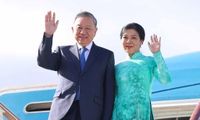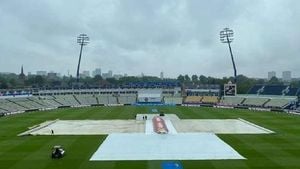Chinese President Xi Jinping is on a state visit to Russia from May 7 to May 10, 2025, at the invitation of Russian President Vladimir Putin. This visit coincides with the celebration of the 80th anniversary of Victory Day on May 9, 2025, in Moscow, where Xi will join other foreign leaders to commemorate the historic event.
Notably, this marks Xi Jinping's 11th visit to Russia since he assumed the presidency, and over the years, he has met with Putin more than 40 times. Russian Foreign Ministry spokeswoman Maria Zakharova characterized the visit as "one of the key events in Russia-China relations this year," highlighting its significance in the context of the ongoing geopolitical landscape.
During this visit, Xi is expected to sign several agreements aimed at enhancing the "unlimited" strategic partnership between China and Russia. The Kremlin has indicated that discussions will focus on key projects, including the Power of Siberia 2 gas pipeline, and will also address the ongoing conflict in Ukraine and the state of Russia-U.S. relations during their meeting scheduled for May 8, 2025.
In 2024, bilateral trade between China and Russia reached an impressive $244.8 billion USD, solidifying China’s position as Russia’s largest trading partner for the 15th consecutive year. Amid Western sanctions, China has become the largest buyer of Russian oil and gas, further intertwining their economic fates.
As Xi’s visit unfolds, attention is also drawn to the ceasefire declared by Russia, which took effect at midnight on May 8, 2025, and is expected to last until the end of May 10. This ceasefire, described as a humanitarian gesture in honor of the 80th anniversary of Victory Day, comes amid heightened tensions and recent escalations in hostilities between Russia and Ukraine.
Prior to the ceasefire, both Moscow and Kyiv engaged in mutual attacks, leading to significant casualties and the closure of several airports in Russia. Ukraine’s President Volodymyr Zelensky has publicly rejected the ceasefire, arguing that it is a tactic for Russia to gain a strategic advantage on the battlefield.
Despite the ceasefire, reports indicate that Ukrainian airstrikes have resulted in heavy civilian casualties, with at least 15 people killed and 142 injured in recent days. The situation remains tense, with both sides accusing each other of ceasefire violations.
In a related development, General Secretary To Lam of Vietnam and his wife Ngo Phuong Ly arrived in Moscow on May 8, 2025, to participate in the Victory Day celebrations at the invitation of President Putin. Their arrival was marked by an official welcome ceremony at Vnukovo 2 airport, attended by various Russian officials, including Deputy Prime Minister Dmitry Chernyshenko.
Deputy Prime Minister and Minister of Foreign Affairs Bui Thanh Son noted that Vietnam-Russia relations continue to thrive, building on the strong historical ties established during the Soviet era. The visit is seen as a pivotal opportunity to discuss deeper cooperation in trade, investment, energy, defense, and education.
In 2024, bilateral trade between Vietnam and Russia reached $4.58 billion USD. Currently, Russia has 199 investment projects in Vietnam, with a total registered capital of $990 million USD, while Vietnam has 16 investment projects in Russia totaling $1.6 billion USD.
As both leaders engage in high-level discussions, the geopolitical dynamics in Eastern Europe and Asia are being closely monitored. The cooperation between China and Russia, as well as the growing relationship between Vietnam and Russia, reflects a broader trend of nations seeking to strengthen their ties amid shifting global power structures.
As Xi Jinping and To Lam participate in commemorative events, the implications of their visits resonate beyond mere diplomacy, highlighting the importance of strategic partnerships in navigating the complexities of international relations today.
The commemoration of Victory Day itself is a significant moment in Russian history, marking the defeat of Nazi Germany in World War II. The celebrations are not only a tribute to the sacrifices made during the war but also serve as a reminder of the ongoing struggles faced by nations in maintaining peace and security in the face of modern conflicts.
In conclusion, as Xi Jinping and To Lam engage with President Putin, the world watches closely. The outcomes of these meetings could shape the future of international relations, particularly in the context of the ongoing conflicts in Ukraine and the broader geopolitical landscape.





